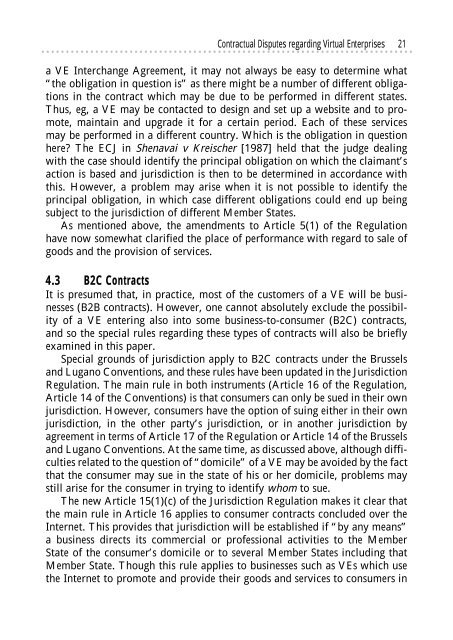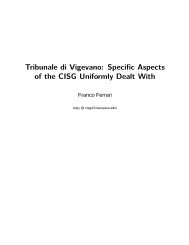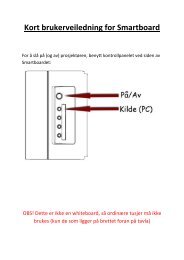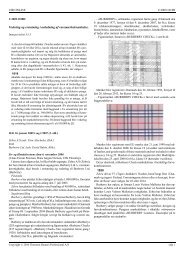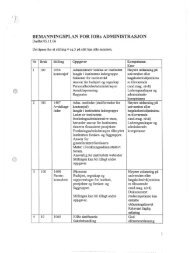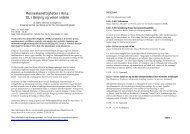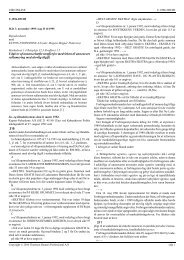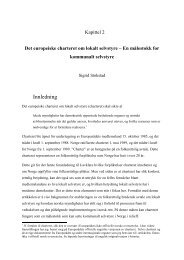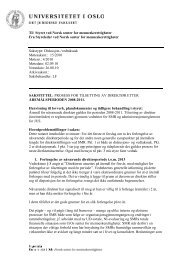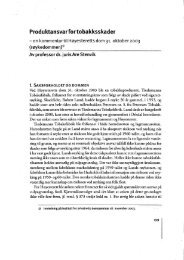Lee A. Bygrave (red.) YULEX 2002 - Universitetet i Oslo
Lee A. Bygrave (red.) YULEX 2002 - Universitetet i Oslo
Lee A. Bygrave (red.) YULEX 2002 - Universitetet i Oslo
You also want an ePaper? Increase the reach of your titles
YUMPU automatically turns print PDFs into web optimized ePapers that Google loves.
............................................................................<br />
Contractual Disputes regarding Virtual Enterprises 21<br />
a VE Interchange Agreement, it may not always be easy to determine what<br />
“the obligation in question is” as there might be a number of different obligations<br />
in the contract which may be due to be performed in different states.<br />
Thus, eg, a VE may be contacted to design and set up a website and to promote,<br />
maintain and upgrade it for a certain period. Each of these services<br />
may be performed in a different country. Which is the obligation in question<br />
here? The ECJ in Shenavai v Kreischer [1987] held that the judge dealing<br />
with the case should identify the principal obligation on which the claimant’s<br />
action is based and jurisdiction is then to be determined in accordance with<br />
this. However, a problem may arise when it is not possible to identify the<br />
principal obligation, in which case different obligations could end up being<br />
subject to the jurisdiction of different Member States.<br />
As mentioned above, the amendments to Article 5(1) of the Regulation<br />
have now somewhat clarified the place of performance with regard to sale of<br />
goods and the provision of services.<br />
4.3 B2C Contracts<br />
It is presumed that, in practice, most of the customers of a VE will be businesses<br />
(B2B contracts). However, one cannot absolutely exclude the possibility<br />
of a VE entering also into some business-to-consumer (B2C) contracts,<br />
and so the special rules regarding these types of contracts will also be briefly<br />
examined in this paper.<br />
Special grounds of jurisdiction apply to B2C contracts under the Brussels<br />
and Lugano Conventions, and these rules have been updated in the Jurisdiction<br />
Regulation. The main rule in both instruments (Article 16 of the Regulation,<br />
Article 14 of the Conventions) is that consumers can only be sued in their own<br />
jurisdiction. However, consumers have the option of suing either in their own<br />
jurisdiction, in the other party’s jurisdiction, or in another jurisdiction by<br />
agreement in terms of Article 17 of the Regulation or Article 14 of the Brussels<br />
and Lugano Conventions. At the same time, as discussed above, although difficulties<br />
related to the question of “domicile” of a VE may be avoided by the fact<br />
that the consumer may sue in the state of his or her domicile, problems may<br />
still arise for the consumer in trying to identify whom to sue.<br />
The new Article 15(1)(c) of the Jurisdiction Regulation makes it clear that<br />
the main rule in Article 16 applies to consumer contracts concluded over the<br />
Internet. This provides that jurisdiction will be established if “by any means”<br />
a business directs its commercial or professional activities to the Member<br />
State of the consumer’s domicile or to several Member States including that<br />
Member State. Though this rule applies to businesses such as VEs which use<br />
the Internet to promote and provide their goods and services to consumers in


